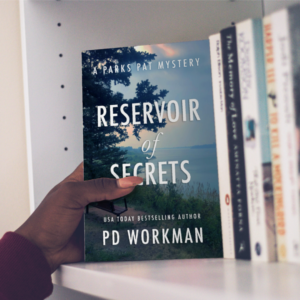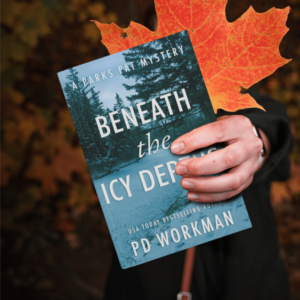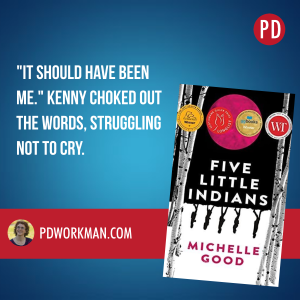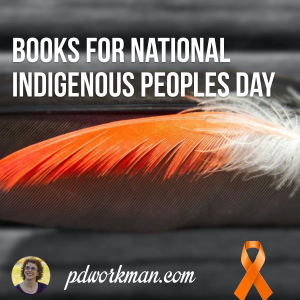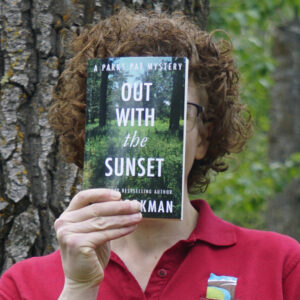
Looking for some books for Father’s Day? Books featuring strong father figures? Pop on over to my blog post for some of my books and some by other authors!
Teaser Tuesdays is a weekly bookish meme. Read the rules and more teasers at The Purple Booker. Anyone can play along.
June is National Indigenous History Month and June 21 is National Indigenous Peoples Day in Canada, so my reading app gave me some suggestions of books by Indigenous authors. I picked up a short book, A Stranger at Home, by Christy Jordan-Fenton and Margaret-Olemaun Pokiak-Fenton, about Margaret-Olemaun’s experience returning home from residential school. This is the sequel to Fatty Legs, her experience at residential school, but I have not read that one yet. I’ll probably pick it up later on this month.
This heartfelt account describes Fenton’s heartache at returning to her family unable to speak their language or eat their food anymore, her mother not recognizing her, and her younger siblings not old enough to remember her. She is shunned by some of those in her Inuvialuit community who see her as an outsider, and it takes quite a while for her to recover her native tongue. A quick read, and an important one if you want to learn more about Canada’s history.
A Stranger at Home is categorized as a children’s book, and it does not “talk down” to readers. It can certainly be enjoyed by readers of all ages.
I have previously reviewed From the Ashes, another book about the Canadian indigenous experience which is a much longer, more difficult read, but another that I would highly recommend.
Would you believe that at one point could scarcely remember my own name or even speak the same language as my
Christy Jordan-Fenton and Margaret-Olemaun Pokiak-Fenton, A Stranger at Home
mother?
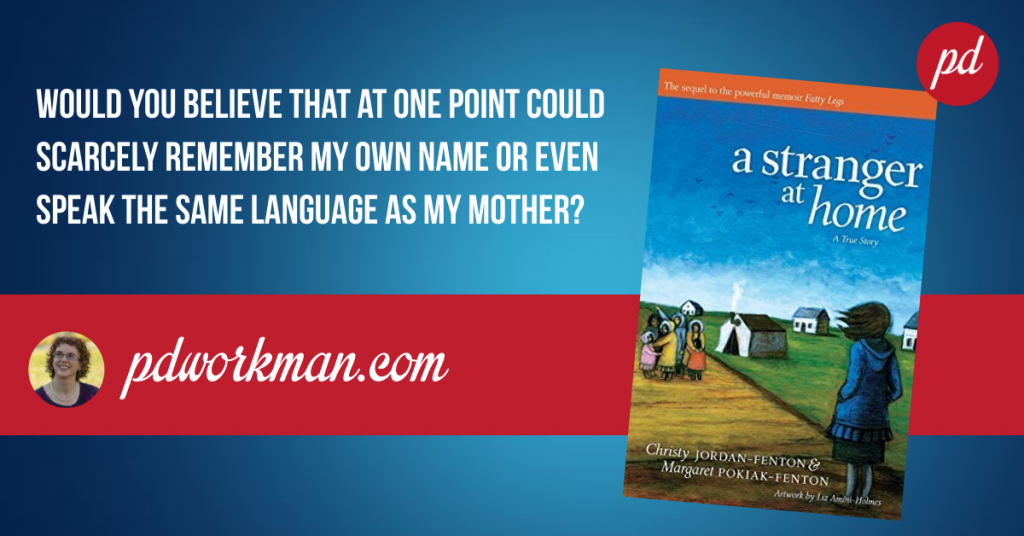
Traveling to be reunited with her family in the arctic, 10-year-old Margaret Pokiak can hardly contain her excitement. It’s been two years since her parents delivered her to the school run by the dark-cloaked nuns and brothers.
Coming ashore, Margaret spots her family, but her mother barely recognizes her, screaming, “Not my girl.” Margaret realizes she is now marked as an outsider. And Margaret is an outsider: she has forgotten the language and stories of her people, and she can’t even stomach the food her mother prepares. However, Margaret gradually relearns her language and her family’s way of living. Along the way, she discovers how important it is to remain true to the ways of her people — and to herself.
Highlighted by archival photos and striking artwork, this first-person account of a young girl’s struggle to find her place will inspire young readers to ask what it means to belong.






